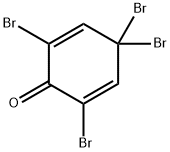A2335312
1,4-Cyclohexadiene , 97% , 628-41-1
Synonym(s):
1,4-Dihydrobenzene
CAS NO.:628-41-1
Empirical Formula: C6H8
Molecular Weight: 80.13
MDL number: MFCD00001535
EINECS: 211-043-1
Update time: 2022-07-08
PRODUCT Properties
| Melting point: | -49.2 °C |
| Boiling point: | 88-89 °C (lit.) |
| Density | 0.847 g/mL at 25 °C (lit.) |
| refractive index | n |
| Flash point: | 20 °F |
| storage temp. | 2-8°C |
| form | Liquid |
| color | Clear colorless |
| Water Solubility | Miscible with organic solvents like diethyl ether, tetrahydrofuran and toluene.Immiscible with water. |
| BRN | 1900733 |
| Dielectric constant | 2.2599999999999998 |
| Exposure limits | ACGIH: TWA 2 mg/m3 NIOSH: TWA 10 mg/m3 |
| Stability: | Stable. Highly flammable. Incompatible with strong oxidizing agents. |
| InChIKey | UVJHQYIOXKWHFD-UHFFFAOYSA-N |
| LogP | 2.300 |
| CAS DataBase Reference | 628-41-1(CAS DataBase Reference) |
| NIST Chemistry Reference | 1,4-Cyclohexadiene(628-41-1) |
| EPA Substance Registry System | 1,4-Cyclohexadiene (628-41-1) |
Description and Uses
1,4-Cyclohexadiene is used to study the formation of parent ion from heavy fragmentation on irradiation with a high-intensity laser pulse. It is also used as a very effective hydrogen donor for catalytic hydrogenation reaction. It forms benzene at elevated temperatures in the presence of a ruthenium(II)-triphenylphosphine catalyst.
Safety
| Symbol(GHS) |   GHS02,GHS08 |
| Signal word | Danger |
| Hazard statements | H225-H340-H350-H373 |
| Precautionary statements | P202-P210-P233-P240-P241-P308+P313 |
| Hazard Codes | F,T |
| Risk Statements | 11-48/20/21/22-46-45 |
| Safety Statements | 53-45-16 |
| RIDADR | UN 3295 3/PG 2 |
| WGK Germany | 3 |
| F | 23 |
| TSCA | Yes |
| HazardClass | 3 |
| PackingGroup | II |
| HS Code | 29021990 |




